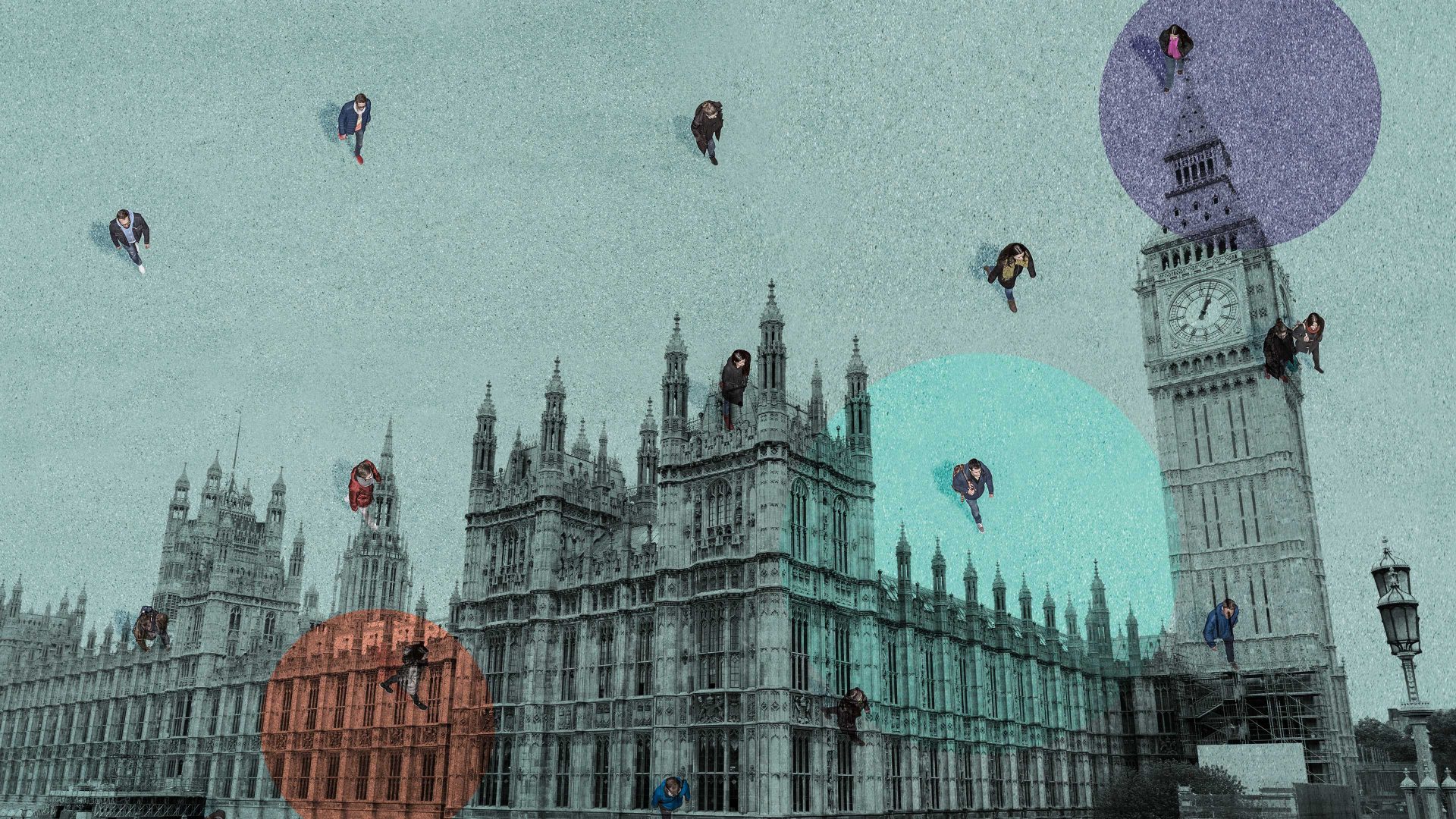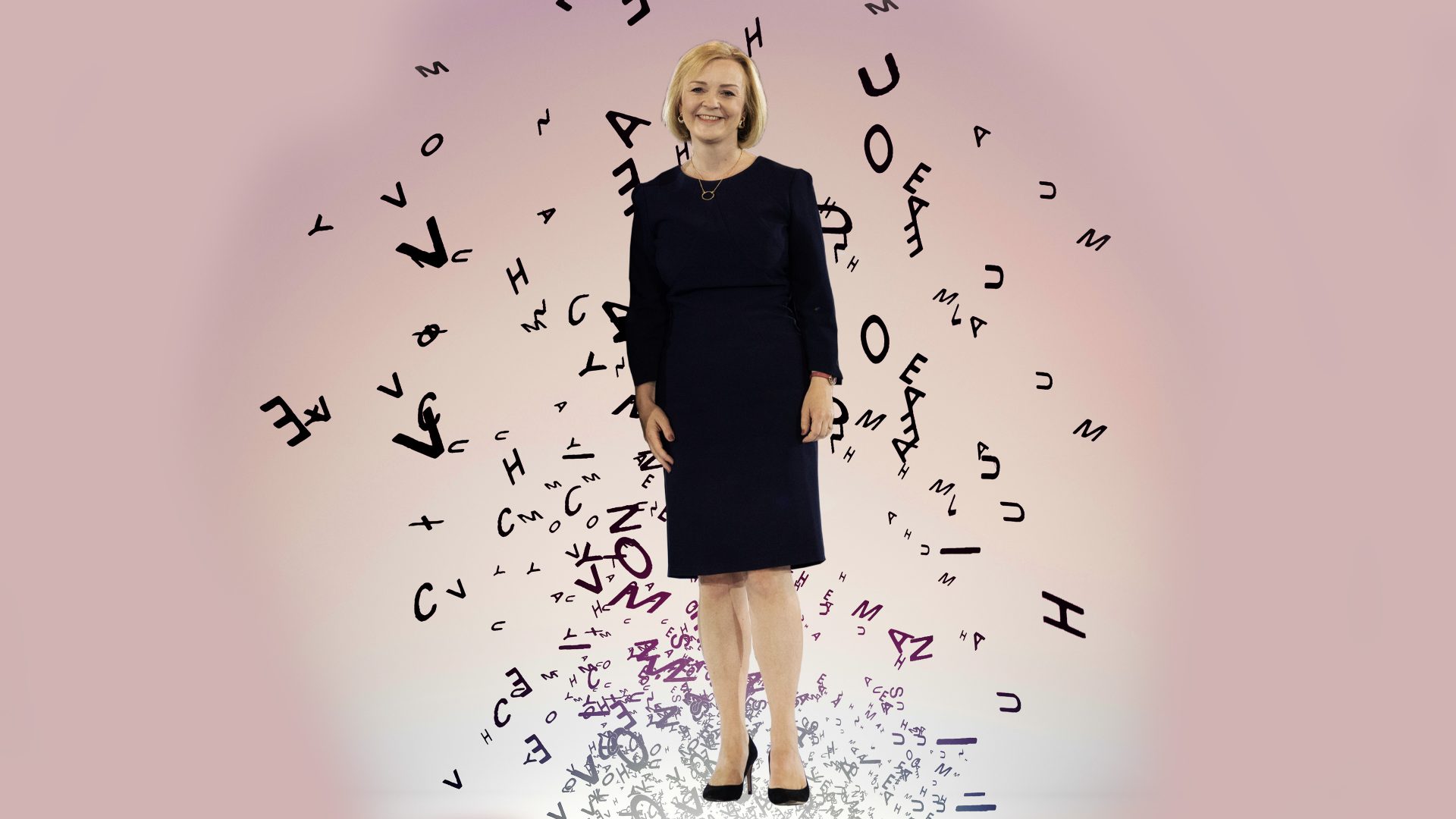We all have our moments of internal doubt – when we ask if we’re really up to the task, are our inadequacies about to be discovered, can we even do our jobs? To that end, the government is doing us all a valuable service, as any time we ask ourselves any of these questions we can remember that someone looked at Jacob Rees-Mogg and decided to give him a senior cabinet post.
Rees-Mogg, a standard issue city spiv cosplaying as a Victorian-era eccentric, is so politically toxic he’s hidden underground for several months before any election. Even he was so confident he’d be out of the cabinet that he announced his departure from frontline politics, after constantly attracting negative headlines even in the relatively obscure role of leader of the house under Boris Johnson.
And yet here he stands as the cabinet minister in charge of getting Britain through the winter amid the biggest energy crisis the country has faced in nearly 50 years – as energy minister. If he can get up in the morning and go to work, surely any one of us can.
But Rees-Mogg is just the particularly odious tip of a particularly irritating iceberg with this government: most of the people in it just don’t seem all that good. That’s not just speaking in terms of what’s good for the nation, or what’s good in policy terms for readers of this newspaper – it’s about whether they’re competent on their own terms, and it’s hard to look at the first few weeks of the Truss government and see much evidence of capability.
The big mistakes are obvious – Kwasi Kwarteng’s not-a-budget-hugebudget and subsequent U-turn will likely go down as one of the worst acts of political and economic self-sabotage in British history.
Despite a full leadership contest to work out plans and to roll the pitch, Truss and Kwarteng managed to surprise the public, the markets, their MPs and even members of Truss’s own cabinet with their plans.
Looking for big mistakes, then, isn’t hard – but these can be brushed aside, oddly, due to ideology or a particular Machiavellian idea of politics (“here for a good time, not for a long time”?).
Smaller mistakes are more telling: advisers seem to have little idea of when to brief and how. Kwarteng was left walking down the front of Downing Street with nothing to say to a waiting camera, while Truss was left to flounder hopelessly on a local radio press round having been invisible for days.
The explanation is a lack of experience and competence right across the bench of Team Truss, and there are multiple reasons why this is the case.
If you’re hiring for a prestigious six-figure job – cabinet posts pay just over £150,000, including the basic MPs’ salary – you would usually expect to have a huge field of eminently qualified candidates from which to choose.
That’s not the case for any prime minister choosing their cabinet, as has been well documented since the days of Yes, Prime Minister. There are around 100 cabinet and ministerial jobs to fill in total, most of which must be filled by MPs.
A prime minister with a small majority will have a pool of just 326 MPs to choose from. Liz Truss, even though she is inheriting a large majority, has just over 350. In any circumstances, this choice is not always the one a prime minister would want – the skills and criteria needed to get selected and then elected as an MP have nothing whatsoever to do with those of running a major government department. Why are they so hopeless? MPs get selected as candidates by years of gruelling glad-handing, either as local councillors or as parliamentary researchers and then special advisers, often standing in a doomed race before having a chance to stand in a viable seat.
This can be a long, demoralising game, reliant on who you know, who you’re related to, and whether you can afford to be a candidate – and whether you upset the wrong people on the way. It takes years and relies completely on luck. Plenty of potentially brilliant MPs or ministers take one look at it and immediately walk away.
Of the pool of MPs you have – especially in Truss’s situation, where the party has been in government for a long time – quite a lot of MPs are ruled out by previous scandals, general rebelliousness, and health or personal problems.
When you have made the political choice to appoint only loyalists, especially when you’re backed by less than half of your party, your field narrows dramatically once again. Facing a party that, after years of office, looks exhausted and divided among itself, your options for ministerial office start to look very narrow indeed.
The dream is that you’re able to elevate someone who has experience in the department in which you want them to work, perhaps as a minister of state or similar – or else someone with cabinet experience in a smaller department, who knows where the pitfalls are and how to get an agenda delivered.
The reality is that between job offers you have to make to reward your loyal supporters, people you’re determined to keep on the backbenches because of previous feuds, and every other disqualifying factor, the bench of talent after 12 years of government is shallow indeed.
David Cameron, elected after 13 years of opposition, had the chance to pick the first team in terms of rising Conservative talent – even if you believe he squandered it. The first team left years ago, though. Truss is coming in as a caretaker manager, picking whoever is still around – there simply weren’t many good choices left, in talent and experience terms, for her to make.
The problem behind the scenes is perhaps even worse. The UK has a permanent civil service, who are impartial and stay in place even as politicians come and go – or so the theory goes.
As it happened, Liz Truss dismissed her national security adviser and enabled Kwasi Kwarteng to make the unprecedented move of unceremoniously firing the permanent secretary of the Treasury as his first act in office, a move which almost certainly contributed to the market panic he went on to cause.
The result of this permanent, nominally apolitical, administration is that ministers need someone to handle the politics and the political media. For this, they are allowed a certain number of special advisers. Relatively junior cabinet ministers might find they have only one, while the prime minister is likely to have 20 or more.
But not all special advisers are created equal. When a party enters government after a long time in opposition, the core of the team that comes in is the team that got the party elected after a long period in the wilderness. They have typically built up discipline and are unified on a manifesto and a set of aims. They are focused far more on the opposition than on internal feuds.
These people are supplemented by outside experts who come into politics because this might be their only chance to do so – relatively senior journalists cross the fence and become comms advisers, former civil servants rejoin government to offer their advice more politically, and so on. The bench is quite deep.
The problem is, after a while these people move on – government is exhausting, there is no job security and the pay is lower than comparable private sector jobs. Some talented advisers are lost because their minister is sacked. Some start having children and need to earn more. Some realise that their minister will never be prime minister and they’ll never move into a more glamorous job.
At first, replacing these advisers is easy. They will often have a colleague to recommend – a researcher who’s been doing the job too long and is due a promotion, or a senior think tank wonk who they can vouch for. Some of these people will be brilliant, but generally the quality might start to drop off a little, according to former special advisers. And once advisers have left for the more lucrative world of the private sector, they rarely come back.
If that’s the situation three to five years into government, you might guess who can be persuaded to become a special adviser to a government 12 years in. Picture that, then wonder who would do that for the third prime minister in three years, with less than two years to go before a general election.
People are plucked from think tanks with less than two years’ experience, none of it involving the difficult work of having to actually implement the policies that had previously been so well received in their four-page “reports”. Comms and social media people are plucked from Twitter, or out of journalism school.
The result is ministers who are some mixture of bad, mad and out of their depth, supported by callow teams. Truss has done almost everything she could do to make the situation worse, but the structural problems of getting good people into government aren’t entirely her fault.
Politics famously attracts the wrong people – not least, Oxford PPEists. But changing who it attracts would be a huge series of structural reforms. It would involve changing how parties select MPs (which would probably mean changing the electoral system), and changing the role of MPs too, as the job has largely become impossible.
It might also involve making it possible for at least some ministers to be neither MPs nor Lords, to widen the talent pool. It could include professionalising the special adviser system so they no longer function as court flunkeys, serving at the pleasure only of their minister.
None of this will happen under Truss, of course. But a prime minister that was actually serious about improving the productivity of the country and the growth of the economy might wish to look around them, and start with what’s right in front of them.




